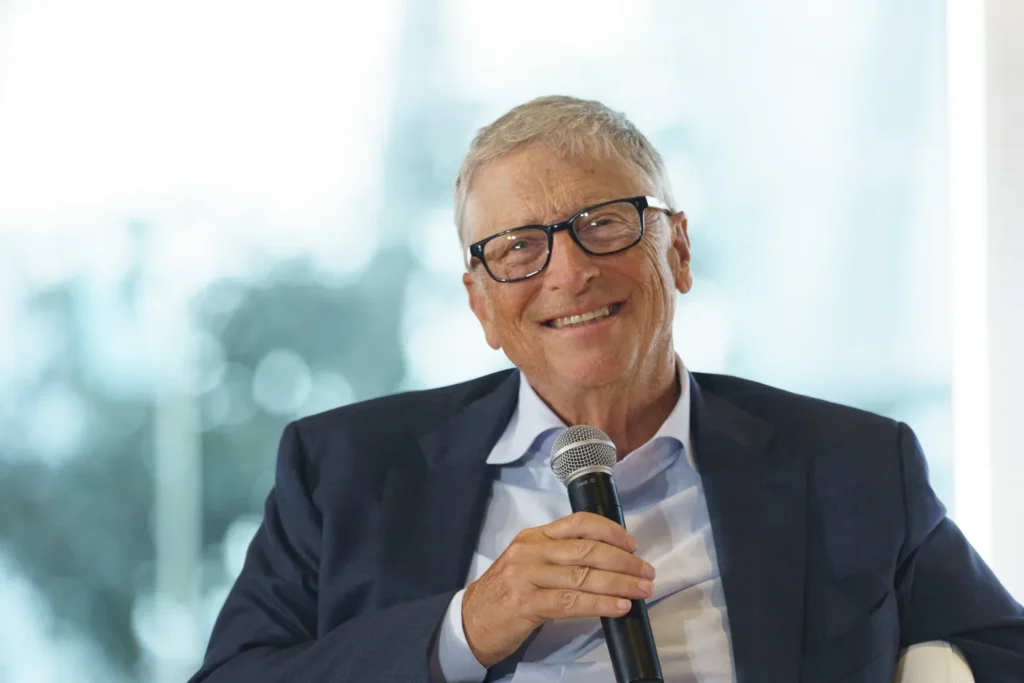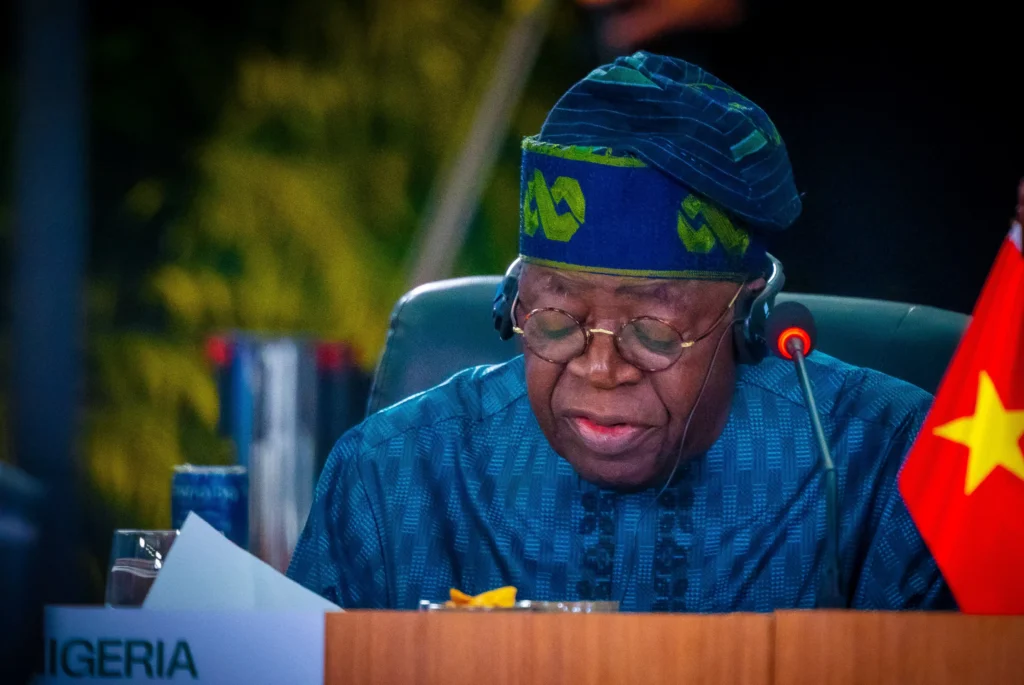Nigeria’s health budget too small to address challenges – Bill Gates
Billionaire philanthropist Bill Gates has raised concerns over Nigeria’s insufficient investment in healthcare, stating that the country’s current health budget is inadequate to meet its pressing health needs.
Mr Gates, chair of the Gates Foundation, made this known during a media round table in Lagos on Wednesday ahead of the first-ever Goalkeepers event by the Gates Foundation in Nigeria.
He warned that the health budgets will be under pressure, particularly with foreign aid cuts, adding that there will be less money for health in Nigeria next year than this year.
Mr Gates observed that the low funding for health was part of the reasons Nigeria has the second highest maternal and child mortality rate in the world.
“The amount of money Nigeria spends on health care is very, very small. So, I don’t know why you would have expected that number (maternal mortality) to go down. If a mother delivers at home, there are certain complications that you can’t solve,” he said.
“What countries like India do is that they drive delivery into centres where they can give C-section but that takes money. In northern Nigeria, about half the births are at home and even the ones that aren’t at home, many of those centres can’t do C-sections. So, unfortunately, you’re going to have a maternal mortality problem because of that.”

Low budgetary allocation
Despite years of pledges to improve health funding, Nigeria’s health budget still falls short of the Abuja Declaration’s 15 per cent benchmark for health spending.
For instance, in the 2024 budget, the federal government allocated N1.23 trillion to the health sector, about 5.46 per cent of the total budget. While this was a slight increase from N1.17 trillion in 2023, it represented a drop in percentage terms from 5.8 per cent allocation the previous year.
The funds were directed largely at expanding health insurance and strengthening primary care through the BHCPF.
For 2025, the allocation doubled to N2.48 trillion, accounting for 5.18 per cent of the total N47.9 trillion national budget. This includes more support for infrastructure and further investment in the BHCPF.
Mr Gates said this persistent underinvestment, combined with recent cuts to US foreign aid for global health, puts Nigeria in an even more vulnerable position.
US President Donald Trump, after his inauguration, signed an executive order to immediately pause the country’s foreign aid to ensure they are efficient and consistent with US foreign policy under the ‘America First agenda.’
These cuts are already being felt in countries like Nigeria, which rely on donor support for essential services like immunisation, maternal health, HIV care, and disease surveillance.
Maternal and child mortality
Nigeria’s maternal mortality rate is one of the highest in the world, with the United Nations Economic Commission for Africa saying that one in seven global maternal deaths occurs in Nigeria. That is more than 50,000 women dying per year in Nigeria.
A 2023 report, titled: ‘Improving maternal and newborn health and survival and reducing stillbirth: Progress Report 2023’, shows that Nigeria accounts for the second-highest number of maternal and child deaths globally, after India.
The report noted that in 2020, about 788 women and children died ‘per thousand’ in India and about 540 women and children ‘per thousand’ died in Nigeria.
In the same year, India accounted for 17 per cent of global maternal, and neonatal deaths and stillbirths, while Nigeria accounted for 12 per cent.
Eight other countries with high maternal, neonatal, and stillbirths are Pakistan, the Democratic Republic of Congo, Ethiopia, Bangladesh, China, Indonesia, Afghanistan, and the United Republic of Tanzania.
The report estimates that globally, there were a combined 4.5 million maternal, neonatal deaths and stillbirths in 2020.
Mr Gates, in his remark, disclosed that his foundation is supporting innovations aimed at making maternal and child care more affordable and accessible.
He emphasised that the innovation had assisted in the reduction of maternal and child deaths, malaria mortality, preventing mother-to-child HIV transmission, reducing malnutrition, and upscaling vaccine coverage.
He cited low-cost ultrasound devices that identify high-risk pregnancies, affordable bleeding intervention kits, and multiple micronutrient supplements for pregnant women as some of the tools being promoted.
Mr Gates added that recent clinical trials had yielded cost-effective ways to reduce anemia and postpartum hemorrhage, noting that one such study had to be halted early due to its overwhelming success.
Interventions, Innovations
Mr Gates reaffirmed his foundation’s commitment to supporting health innovations, despite rising global instability.
According to Mr Gates, his foundation remains dedicated to driving progress in healthcare, even in the face of challenging global circumstances.
“We understand that the world is facing numerous challenges, but we believe that investing in health innovations is crucial for creating a better future for all,” he said.
Mr Gates, through the Gates Foundation, has spent millions of dollars in Nigeria, majorly in the areas of health, agriculture, and poverty reduction.
His foundation’s commitment to the country is now totalling over $2.8 billion, the highest in Africa.
The Gates foundation has been a key partner in Nigeria’s polio eradication efforts, immunisation campaigns, malaria control, and maternal and child health programmes.




